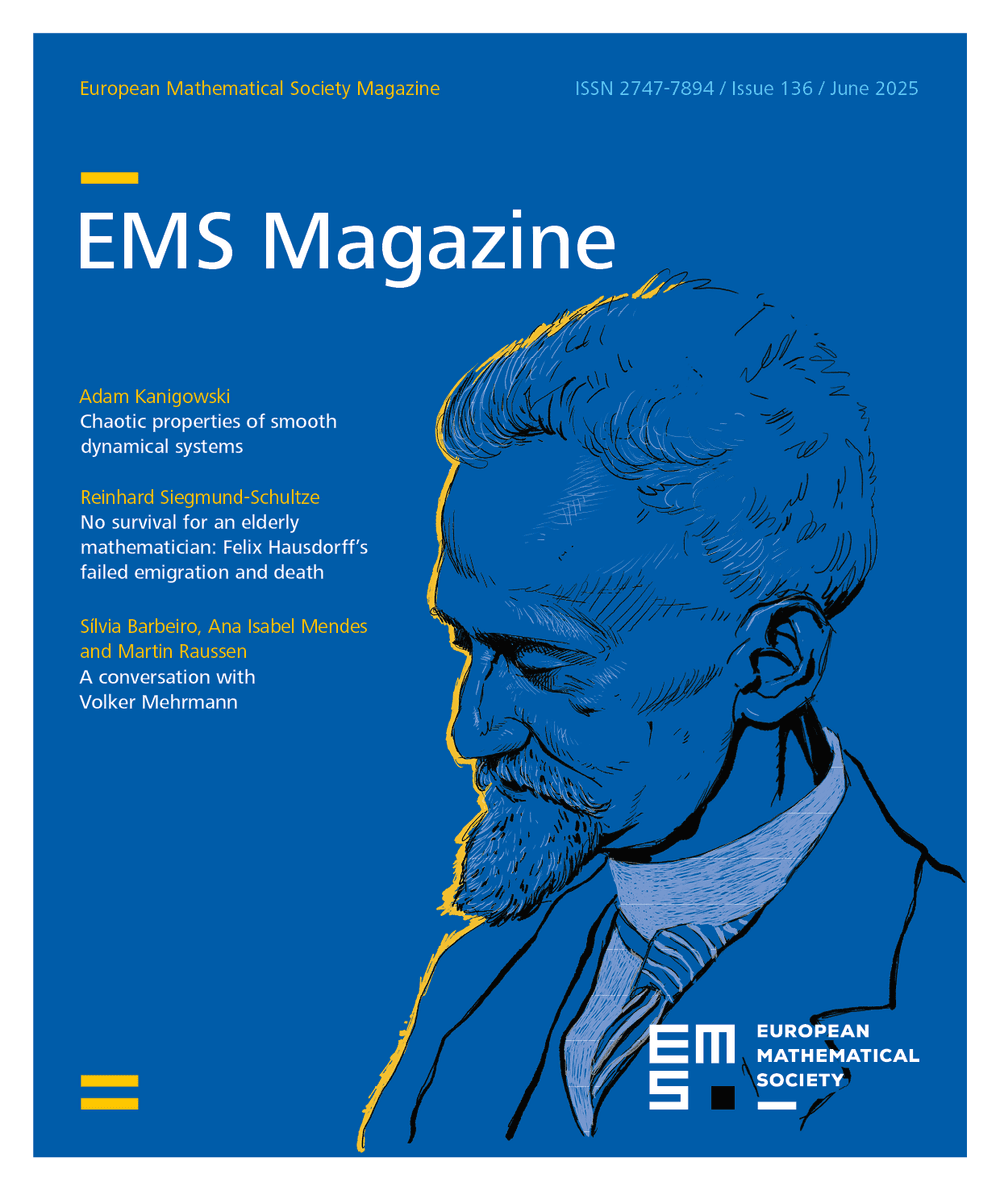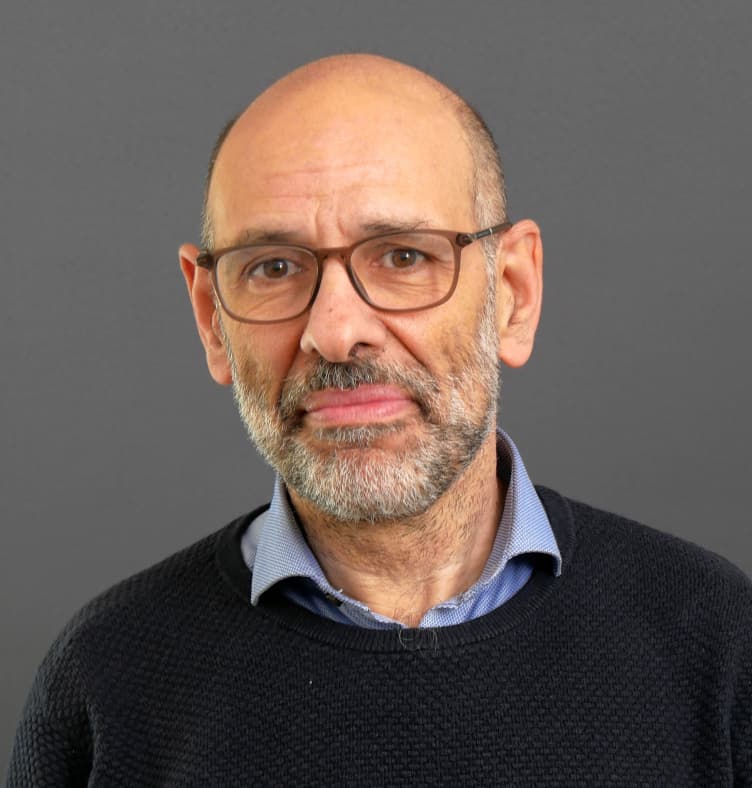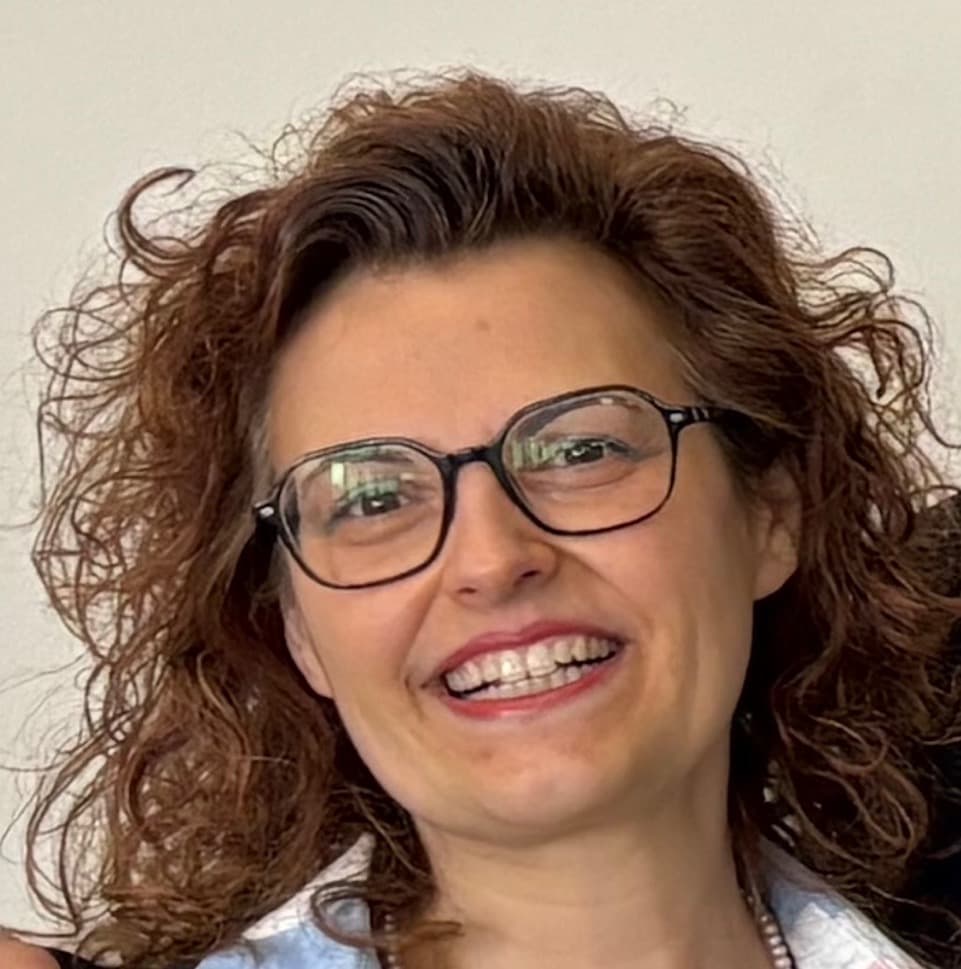Photo by Jim Høyer, University of Copenhagen.
©All rights reserved.
In my last message I emphasized how academic freedom is a core value of the EMS and that we are concerned to be seeing it challenged in a changing world. Indeed, since then, the EMS published a statement in support of academic freedom.1https://euromathsoc.org/news/european-mathematical-society-statement-on-academic-freedom-169
Academic freedom is being challenged in many places, and mathematicians and other scientists are being targeted. The EMS also published a statement expressing concern for our esteemed colleague Professor Mikhail Volkov from Russia who has been forced to retire from his position at Ural Federal University and has been denied the possibility of traveling freely.2https://euromathsoc.org/news/european-mathematical-society-expresses-concern-for-professor-mikhail-volkov-168
Let me now turn to something more positive and highlight some of the new initiatives we have been planning at the EMS. The first is not really new but rather the relaunch of our Strategic Activities that we had to pause for several reasons but are excited to be returning to. We plan to open up for these activities initiative again in the fall. In its new iteration it will be our EMS Topical Activity Groups (TAGs) who will have the opportunity to apply for these Strategic Activities to promote larger scale inclusive events across geographic boundaries and disciplines.
EMS is also continuing its ambition to engage with policymakers and is in the process of forming an external policy group to strengthen this engagement. As I mentioned in an earlier message, we have already formed an EMS–ERC working group that interacts closely with the ERC in support of their goal to widen participation. ERC funding is of course very competitive, but we believe that ERC and, in particular, the mathematics panel PE1 are working hard to support mathematics across Europe and across sub-disciplines. This is not always easy, and we hope together with the EMS–ERC working group to increase the perception of ERC as inclusive and welcoming to all areas of mathematics and all aspects of diversity. We believe there is potential for an increased number of excellent applications to ERC.
Our community engagement manager Enrico Schlitzer is planning a campaign to increase EMS membership, especially among early career researchers, those who do not need to pay for membership the first few years. One particular initiative is to launch masterclasses for early career EMS members on different topics of interest to them. One such topic is the question of maneuvering in the complicated landscape of publishing. While this is particularly aimed at early career researchers, I think this may also prove very useful for those of us who are more experienced. In particular, I often find, talking to colleagues, that there are a lot of misunderstandings about the whole issue of open access. Luckily, there is general support among mathematicians for open access but also a general belief that this is not an important issue worth worrying about because most of us use repositories like the arXiv. I disagree and think we ought to take this issue seriously and concern ourselves with it. Many research funding agencies like, e.g., ERC subscribe to the Plan S open access requirements. Using repositories like ArXiv is Plan S compliant as the green open access route. It, however, requires the refereed author version of the manuscript to be immediately available upon publication and most commercial publishers do, in fact, not allow this. Many of us either ignore this or do not need to care because we live in a rich country (or belong to a rich institution) that has an agreement with commercial publishers. This is certainly not a fair system and does not support “equal access to open access.” There are many other issues regarding open access that I will not get into here. My main mission is to encourage you to stay informed.
Let me finally remind you of the upcoming EMS supported first Indo-European Conference in Mathematics to be held in Pune, India, January 12–16, 2026.3https://euromathsoc.org/news/the-first-indo-european-conference-in-mathematics-to-be-held-in-pune-india-(january-12-16-2026)-160
I hope to see many of you there.
I wish you all a great summer and a great start to the new academic year.
Jan Philip Solovej President of the EMS
All rights reserved.
Dear readers of the EMS Magazine, In this issue of the EMS Magazine, you will find another article by a winner of the 2024 EMS Prizes – this time by Adam Kanigowski – as well as a contribution from Reinhard Siegmund-Schultze, recipient of the Otto Neugebauer Prize, awarded for original and influential work in the field of the history of mathematics.
As usual, the Magazine includes a range of articles on diverse topics, along with our regular columns on discussions, societies, education, and book reviews.
In celebration of the International Women in Mathematics Day – May 12, we are pleased to feature a special contribution: a piece based on a panel discussion organized by the Anillo Matemáticas y Género (Mathematics and Gender) project, funded by the Chilean National Agency for Research and Development. The panel focused on issues of social justice, equity, and inclusion. Rather than presenting the discussion in the form of a traditional article, we chose to convey its spirit through a series of cartoons created by Coni Rojas-Molina.
Finally, you may have noticed that Issue 135 of the EMS Magazine reached your mailbox later than expected. I apologize for this delay and want to assure you that we – both the editorial team and EMS Press staff – are working hard to streamline our processes to ensure timely delivery of future issues.
Donatella Donatelli Editor-in-chief
Cite this article
Jan Philip Solovej, Donatella Donatelli, A message from the president / Brief words from the editor-in-chief. Eur. Math. Soc. Mag. 136 (2025), pp. 3–4
DOI 10.4171/MAG/261

